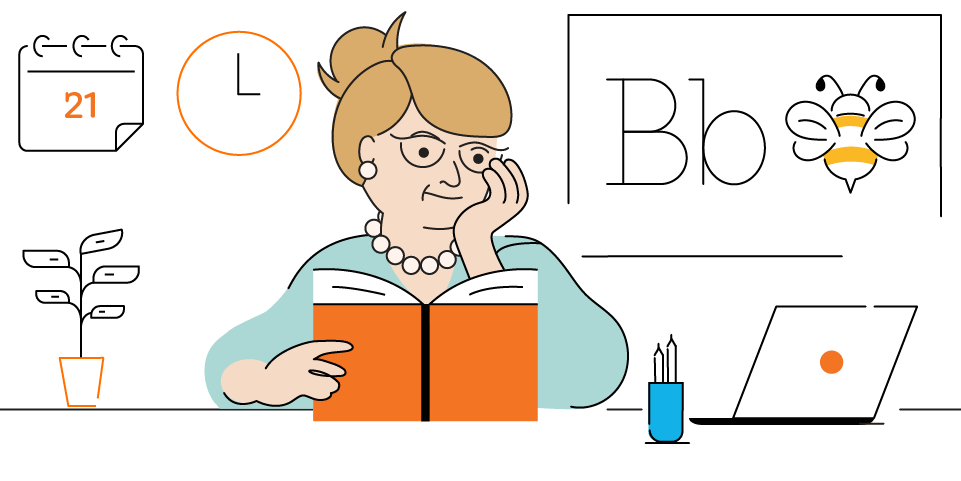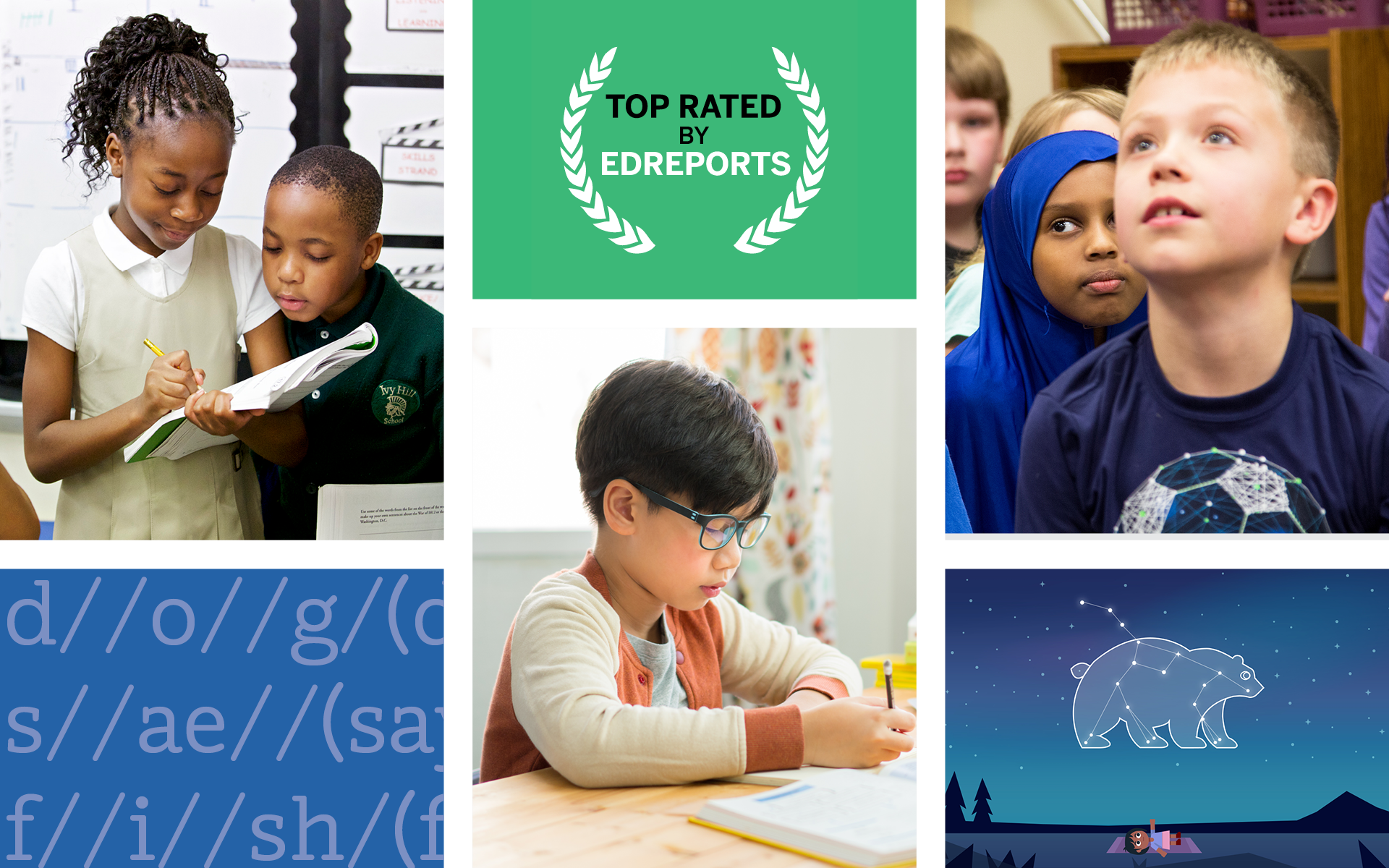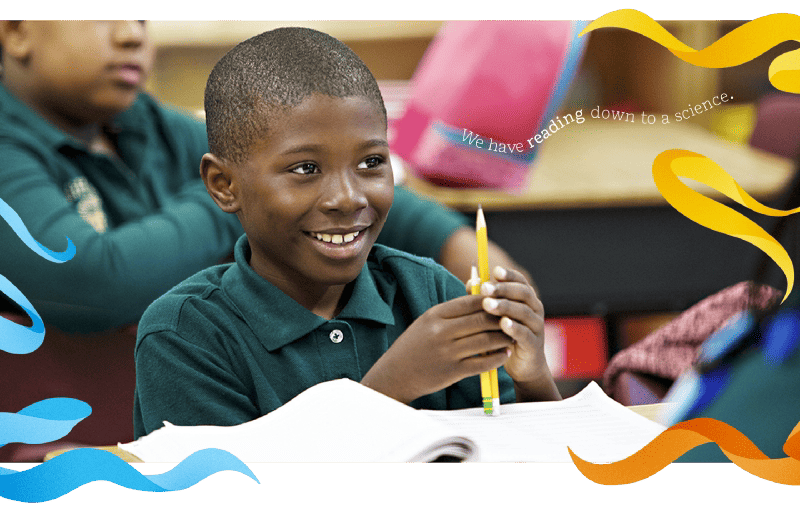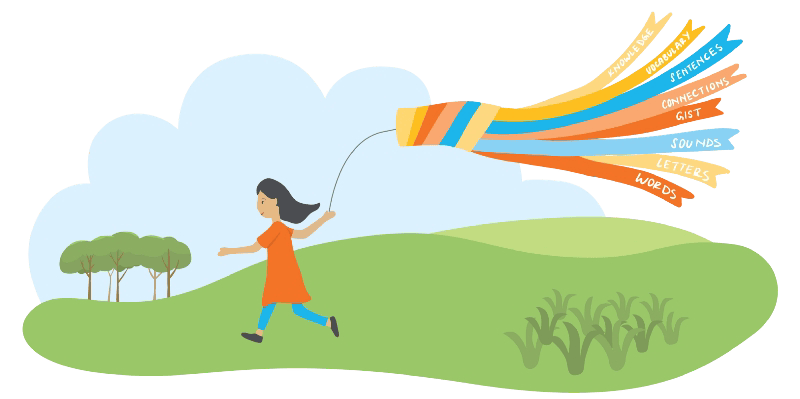
We’ll show you how to tell.
We know how children learn to read. We know how to teach children to read. That’s all thanks to the Science of Reading.
As you likely know, the Science of Reading refers to the pedagogy and practices proven by extensive research to effectively teach children how to read. Learning to read is not innate, but it can be taught—and science tells us how.
That’s why it’s so important to use literacy programs that are truly grounded in the Science of Reading.
But how can you tell which ones are and which ones are not? It can be confusing. Some programs may be partially aligned with the Science of Reading, or use bits and pieces of pedagogy based on it.
But true Science of Reading programs have it in their DNA. And we can show you how to find them.
Explicit and systematic structure
One of the research-based frameworks used in the Science of Reading is the Simple View of Reading.
According to the Simple View, two cognitive capacities are needed for proficient reading: (1) understanding the language (comprehension) and (2) recognizing words in print (decoding).
A true Science of Reading program is built from the start for students to develop these skills. And it’s built to do so in a developmentally appropriate way. That is, program structure matters, too.
Some programs may add supplemental Science of Reading activities to address these needs. Some have been modified to do the same. But that’s not the same as a comprehensive program designed to develop them, explicitly and systematically. That kind of program is truly rooted in the Science of Reading.
The importance of knowledge building
Again, reading depends on both decoding and comprehension. For many years, classroom observation and received wisdom suggested that comprehension should be taught as its own set of skills, while allowing decoding to develop more naturally.
But cognitive science research now shows that early literacy skills are best built deliberately—on a foundation of knowledge. In fact, knowledge-building is not a result of reading and comprehension, but a prerequisite for it. The more you know, the faster you learn.
Some programs rely on the strategy of activating students’ prior knowledge. But not all kids have the same prior knowledge. Diverse backgrounds and experiences mean that not all kids will come to school with the same information about, let’s say, baseball, or the beach.
So a true Science of Reading program will expose students to a diverse array of new topics spanning history, science, and literature. Those topics will be organized in an intentional sequence that builds knowledge coherently within and across grades. And they will make reading accessible to all students.
The foundational skills readers need
Some programs focus on phonemic awareness and phonics. Those are foundational skills, but they’re not all of the foundational skills. The Science of Reading shows that five components are fundamental to reading: phonics, phonemic awareness, vocabulary, fluency, and comprehension.
Students require instruction in all five in order to learn to recognize words and use that knowledge for reading and writing.
As students develop these foundational skills, they develop automaticity. With practice, they are able to recognize words more and more quickly and move from decoding to comprehension.
A true Science of Reading program will include all foundational skills and will deliver the regular practice students need to become automatic decoders.
How Amplify CKLA is built on the Science of Reading
The Science of Reading is in Amplify CKLA‘s DNA. The program was built from the ground up:
- On the Simple View of Reading.
- To deliver knowledge on an even playing field for all students.
- With texts that develop all five foundational literacy skills.
With CKLA, students build knowledge through diverse and enriching content domains. They refine foundational skills through explicit, systematic, phonics-focused instruction. And they do it all in one program, with a detailed road map that guides teachers on every step of the reading journey.
Listen to the podcast now


